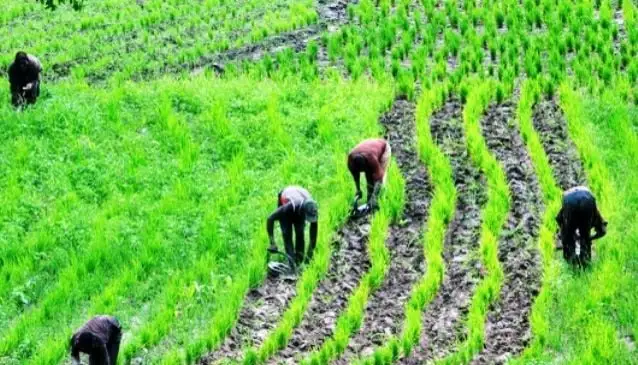
By Ologeh Joseph Chibu
In a bid to tackle food insecurity, the governments of South-West Nigeria are working on a harmonized regional agricultural calendar designed to optimize production cycles across the zone.
The initiative aims to align planting seasons to each state’s competitive advantage, while periodically reviewing the calendar to address regional needs.
One of the key components of the strategy is the comprehensive development of irrigation infrastructure, including the revitalization of dams, to enable year-round farming in most states across the region.
The development was highlighted in the latest progress report obtained by Irohinodua, focusing on the South-West governments’ efforts to address food insecurity through improved agricultural production and infrastructure.
The report was released by the DAWN (Development Agenda for Western Nigeria) Commission, which has been tracking progress since the South-West Governors’ Forum met in June to address rising food inflation and its impact on the region.
One of the major resolutions from the governors’ forum was the establishment of a region-wide Agricultural Data Management and Information System to foster inter-state collaboration on agricultural initiatives. This would create an integrated agricultural ecosystem across the South-West, allowing states to share resources, knowledge, and best practices.
However, the report pointed out gaps in cross-ministerial collaboration, noting that the initiatives of the six state governments remain limited in scope and have not yet reached a significant portion of farmers.
Other proposed but unimplemented measures include introducing mini tractors to assist smallholder farmers, increasing the number of farmers in the region, lowering the average age of farmers, and creating more attractive entry points for youth into the agricultural sector.
Despite these challenges, the report acknowledged several successes by the six states, including the establishment of farmers’ markets, food discount programs to address consumption challenges, enhanced security measures for farming communities, and the adoption of cluster farming models. Additionally, the report noted increased mechanization, expanded input distribution, and improvements in agricultural data management and extension services.
There have also been advances in agricultural infrastructure development, such as land clearing and road construction, alongside efforts to enhance agricultural financing and attract more investment into the sector.
The governors remain committed to addressing food insecurity by building a robust agricultural sector capable of supporting the region’s economic growth and ensuring food security for its population.



